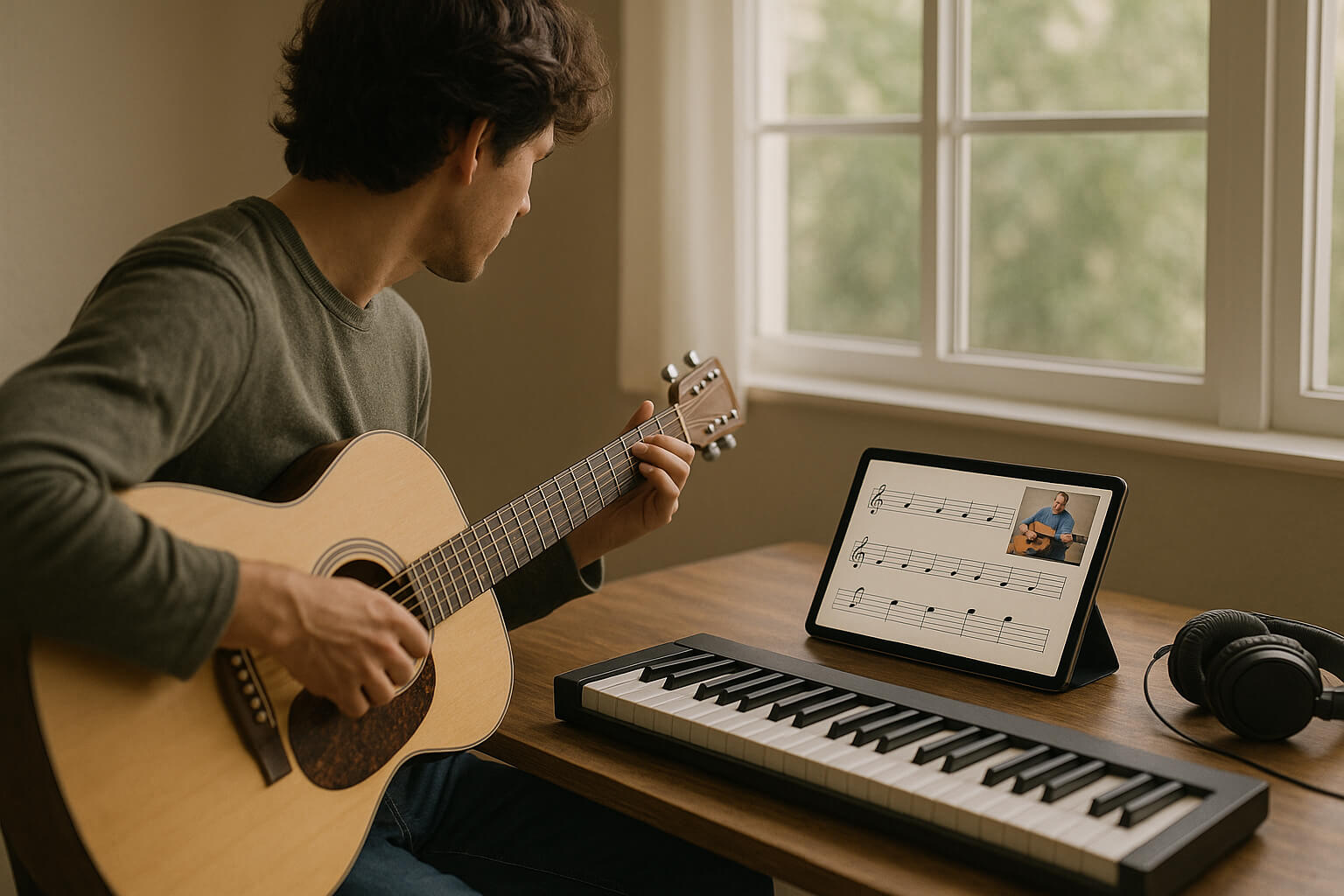How Long Does It Take to Learn an Instrument?

If you’ve ever asked yourself, “How long does it actually take to learn an instrument?” — you’re not alone. Whether you’re thinking of picking up a guitar, sitting at a piano, or diving into drums, this is one of the most common questions every beginner has.
The truth? It depends. Your goals, how consistently you practice, your mindset, and even the instrument you choose all play a role. But here’s the good news—you’ll start enjoying the process long before you master it.
What Does “Learning an Instrument” Really Mean?
- Before discussing how long it takes, let’s clarify what “learning” means to you.
- For some, it’s enough to strum a few songs with friends. For others, it’s about reading sheet music, improvising solos, or even performing on stage. Your personal goal defines your timeline.
- But regardless of your goal, those joyful “aha!” moments—like playing your first melody—happen surprisingly early.
- To accelerate that early progress, resources like the 7-Day Beginner Piano Challenge or a Beginner Guitar Chords eBook can give you a solid foundation within just a few days.
Factors That Influence How Fast You Learn an Instrument
1. Consistency & Quality of Practice
- Practicing for 15–30 minutes daily beats sporadic long sessions. Effective practice is about showing up regularly, isolating weaknesses, and using strategies that maximize progress.
- Explore effective methods in this guide on practice strategies, which breaks down deliberate practice, habit formation, and how to overcome practice fatigue.
2. Your Choice of Instrument
- Some instruments offer a smoother entry point. The ukulele has soft strings and simple chords—ideal for quick wins. The piano is intuitive for visual learners, with its clear layout. The guitar might be a bit challenging at first, but once you master those initial chord shapes, your progress snowballs.
- If you're unsure which instrument resonates with you, try experimenting with AI-generated backing tracks to see what feels natural to play along with.
3. Your Learning Style
- Are you a visual learner who benefits from diagrams and video tutorials? Or perhaps you’re an auditory learner who learns by ear? Maybe you’re a kinesthetic learner who needs hands-on repetition.
- Matching your learning style with the right tools can transform your progress. For example, ear training exercises are essential for auditory learners who want to hear chords and melodies accurately.
4. Using the Right Learning Resources
- Starting with smart resources not only accelerates your learning curve but also makes practice sessions more exciting.
5. Your Musical Background (or Lack of It)
- If you’ve previously played another instrument, learned basic music theory, or have an ear for rhythm, you’ll likely progress faster. But even if you’re starting from scratch, tools like this Beginner’s Guide to Reading Music can help you build foundational skills quickly.
Speeding Up the Learning Process (Without Burnout)
- Focus on Deliberate Practice
- Don’t just play songs you already know. Target the tricky parts, slow them down, and gradually build fluency. This focused practice approach is outlined in Overcoming Plateaus, which teaches strategies to stay motivated when progress feels slow.
- Set Achievable Micro-Goals
- Instead of vague ambitions like “learn guitar,” set goals like:
- Master three chord transitions by Friday.
- Play the first verse of a song without pausing.
- Improve rhythm control using this Rhythm Training Guide.
- Make Practice Fun & Creative
- Jamming to AI-generated tracks or experimenting with loops from sample packs makes practice sessions more interactive and enjoyable.
Realistic Timeline: What to Expect
- If you practice consistently:
- You could strum simple songs or play melodies in 2–4 weeks.
- Confidently playing full songs will take 3–12 months, depending on your dedication.
- Reaching an advanced level—improvising, performing, and mastering complex techniques—can take 2–5 years or more.
Final Thoughts: Progress Over Perfection
Learning an instrument isn’t a destination—it’s a lifelong journey of creativity, joy, and personal expression. With today’s digital resources, intuitive apps, and smart practice tools, it’s easier than ever to start.
Whether your dream is to:
- Play songs with friends,
- Write and record your own music,
- Or perform on stage,
…the path is open.
To make the journey smoother:
And most importantly, take that first step today.
Essential Free Resources to Kickstart Your Journey:
